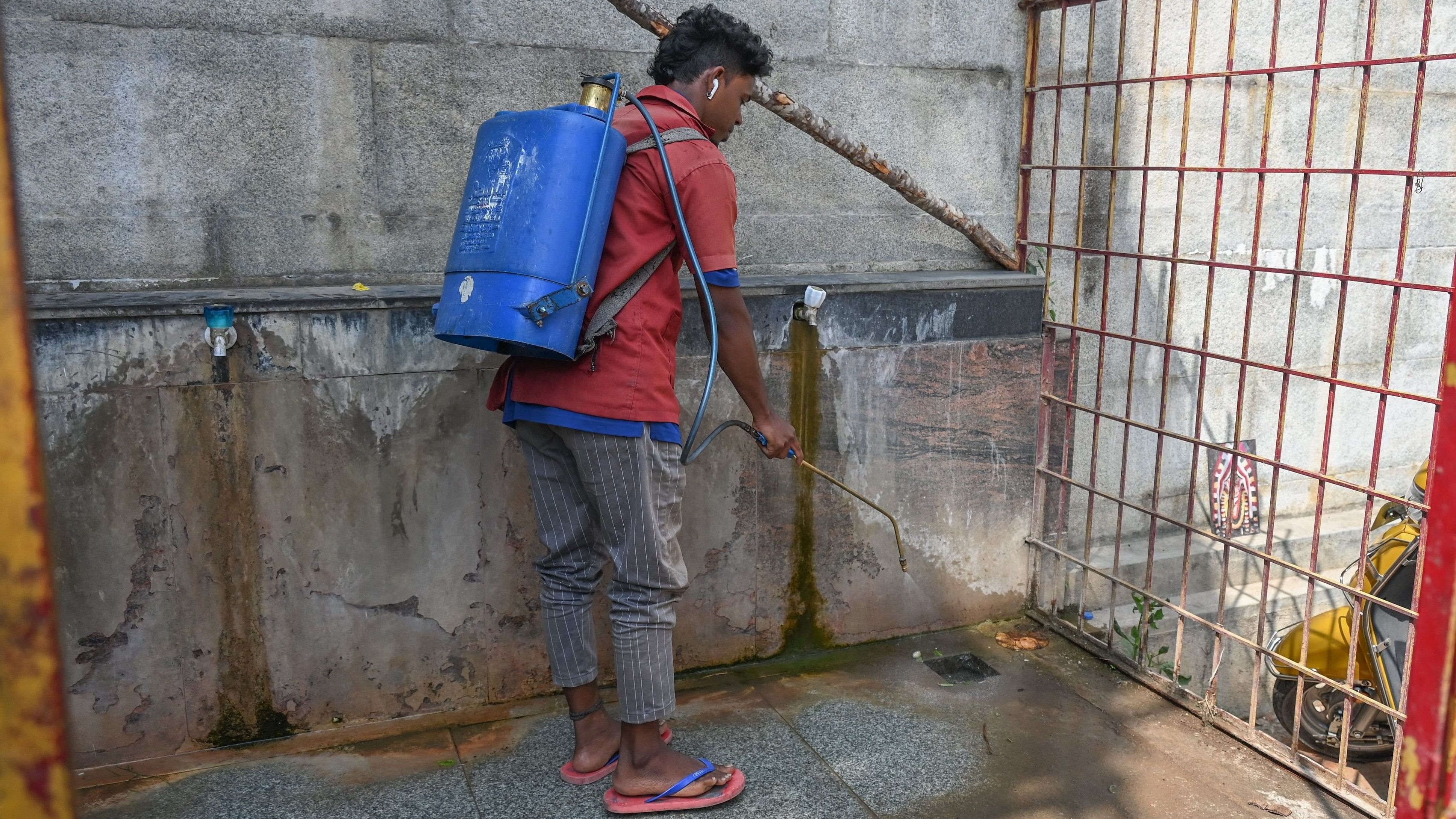
The state has seen a total of 4,624 dengue cases and six deaths this year.
DH File Photo
Amidst a sharp spike in Dengue cases in the state, the health department is working with several other departments to survey areas where the vector-borne disease is being reported.
Every Friday, healthcare workers are conducting door-to-door awareness and source reduction activities across the state.
The state has seen a total of 4,624 dengue cases this year and six deaths, including the one confirmed dengue death in Bengaluru as of July 1. Last year, these numbers were at 1,563 with zero deaths for the same period.
Surveillance is being aggressively carried out in select areas of Bengaluru. Confirmed Dengue cases in Bengaluru city have more than doubled this year. However, the state capital has not reported dengue clusters currently, noted a senior BBMP health officer.
According to data from the state health department’s vector-borne disease control programme wing, there have been 6,443 suspected cases of Dengue in Bengaluru this year. However, blood samples of 4,961 patients were tested and 1,563 samples or 31.5% of them tested positive for dengue virus.
Comparatively, health officials had collected only 1,009 blood samples out of 42,294 suspected cases last year and 732 or 72.5% of them returned positive for dengue during the same period last year.
The number of confirmed Dengue cases is higher this year because of increased blood sample collection and testing, said Dr Mahamood Shariff, state programme officer, National Vector-Borne Disease Control Programme.
Additionally, the percentage of positive cases versus samples collected suggests that the spread of dengue is not yet as widespread as it was last year.
Meanwhile, hospitals in Bengaluru confirmed seeing more people with dengue-like illnesses. People are visiting the outpatient departments with high fever, abdominal pain, breathlessness, fatigue and other symptoms. Only a drop in platelet count combined with bleeding along with other symptoms call for hospital admissions, doctors said.
“Every year in July and August, we see a rise in numbers. We are admitting many people, especially children, but this is not an unexpected situation,” said Dr Arvind Kasthuri, medical superintendent, St John’s Medical College Hospital. Dr Kasthuri added that platelet transfusion is required in very few severe cases of infection, and the focus is on supplying fluids and following the treatment protocol to treat the symptoms.
Dr Hemavathi Srinivasan, obstetrics and gynaecology consultant at a private hospital has seen at least five pregnant women with Dengue. The risks pregnant women are exposed to in case of contracting dengue are much higher.
Dr Govindaiah Yatheesh, president, Private Hospitals and Nursing Homes Association (PHANA), noted that source reduction is the only way forward as cases of dengue are expected to rise in the next two months.